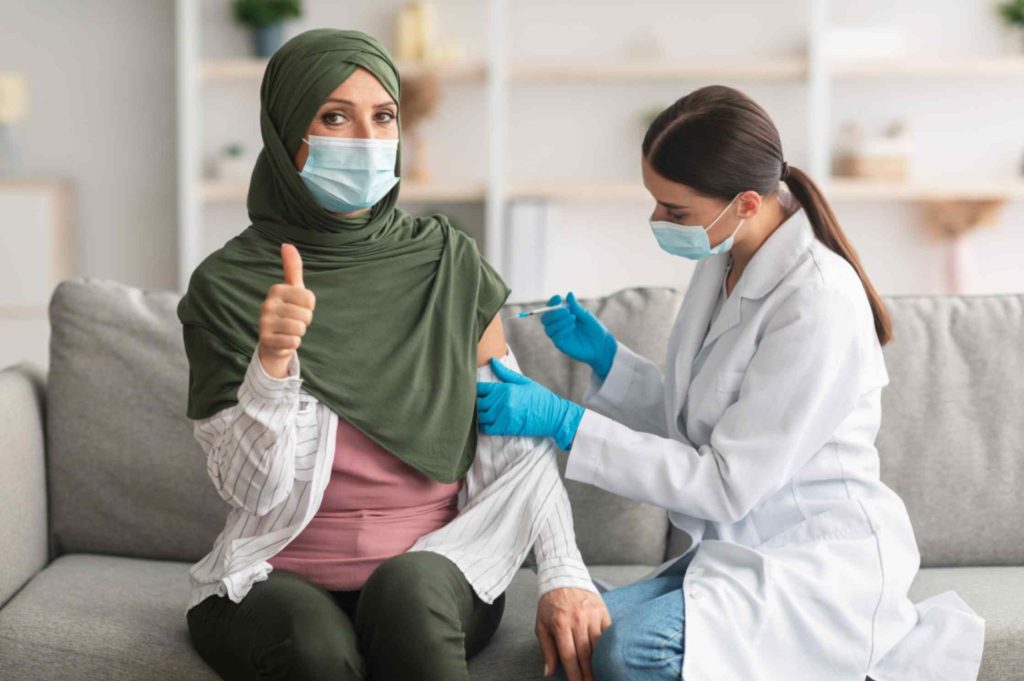
Hajj is a spiritually transformative journey, and each year, thousands of UK residents travel to Saudi Arabia to perform the sacred pilgrimages of Hajj and Umrah. These journeys are deeply spiritual and life-changing. However, the large crowds and international environment also present significant health risks, particularly the spread of infectious diseases. That’s why it is essential for pilgrims to receive the right vaccinations at the right time.
In this blog, we will understand when and why you should get the vaccination for Hajj and Umrah in Gerrards Cross, and Hedgerley, ensuring a safe and protected pilgrimage.
Why Are Vaccines Important for Hajj and Umrah?
Due to the risk of disease transmission among millions of pilgrims from around the world, the Ministry of Health in Saudi Arabia has strict vaccination requirements in place. These regulations are not only for your safety but also for the protection of fellow travellers.
Key vaccines include:
1. Meningitis ACWY: Mandatory for all Hajj and Umrah pilgrims.
2. Seasonal Flu: Strongly recommended, particularly for vulnerable groups.
3. MMR (Measles, Mumps, Rubella): Essential for those who haven’t received full immunisation.
4. Hepatitis A/B, Tetanus, Diphtheria, Polio – Optional but sensible for broader protection.
Getting vaccinated ensures you’re not only compliant with travel regulations but also significantly reduces your risk of falling ill during your pilgrimage.
When to Take the Vaccine for Umrah?
A common question among prospective pilgrims is: “What’s the right time to take the vaccine for Umrah?”
1. Meningitis ACWY: The Meningitis ACWY vaccine must be administered at least 10 days before travel and is valid for five years. However, it’s advisable to get your vaccinations 3–6 weeks in advance to allow time for full immunity and to manage any side effects. Proof of this vaccine is required to obtain a Saudi Arabia visa.
2. Flu vaccine: The seasonal flu vaccine is recommended for Hajj and Umrah travellers, especially those at higher risk (pregnant women, older adults, children over five, and those with conditions like diabetes or asthma). Get vaccinated at least 2 weeks before travel to ensure full protection.
3. Measles & Rubella (MMR) vaccine: The MMR vaccine protects against measles and rubella, which spread rapidly in large gatherings. If previously vaccinated, a booster may be required. It’s recommended to get the vaccine 3–4 weeks before travel to ensure immunity and full protection during your pilgrimage.
Booking early also gives you peace of mind, especially if you’re travelling from areas where demand for pre-travel vaccinations can peak around the pilgrimage seasons.
For residents living in Gerrards Cross, and Hedgerley, they should also plan ahead.
How to Avoid Getting Sick During Umrah?
Health during pilgrimage goes beyond vaccinations. Here are some essential tips:
1. Stay Hydrated: Carry bottled water and avoid excessive sun exposure.
2. Use Masks in Crowds: To reduce respiratory infections.
3. Practise Hand Hygiene: Regular handwashing and using sanitiser help prevent illness.
4. Eat Safely: Choose freshly cooked meals and avoid raw or undercooked foods.
Combining vaccinations with good hygiene is the best way to stay healthy during your journey. That’s the real answer to “how to avoid getting sick during Umrah?”
Prepare Your Journey with Aroga Pharmacy
Your pilgrimage is a spiritual milestone – make sure it’s also a safe one. Aroga Pharmacy at Farnham Common is your trusted provider for vaccination for Hajj and Umrah, serving residents from Gerrards Cross, and Hedgerley. We offer expert advice, certified vaccines, and timely appointments tailored to your travel plans.
Book your Hajj and Umrah vaccination at Aroga Pharmacy today – begin your journey with peace, protection, and purpose.
